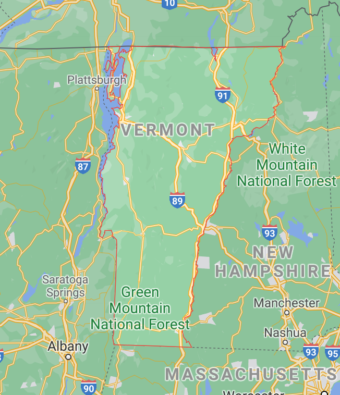Last week, Vermont officials and advocates appointed the final members to the five-person Community Broadband Board, reported Government Technology. The new entity will be responsible for rolling out fiber broadband to every resident in the state since Vermont is among the “top five worst-connected” states, according to BroadbandNow. The board is tasked with providing grants, technical and administrative assistance, and more.
The state estimates that 51,000 homes fall below the FCC’s threshold for minimum download speeds (25 Mbps). Government Technology reported that according to Vermont’s 10-year telecom plan, the gaps are unlikely to be addressed by “private enterprise or federal programs.”
The board’s goal is to install fiber-optic cables to provide 100 Mbps upload and download speeds, underwritten with $150 million in American Rescue Plan funds. Vermont’s broadband expansion plan anticipates residents needing anywhere from 1 to 10 Gbps upload and download speeds “in the coming decades.” The state hopes to achieve broadband connectivity for every resident within five to seven years.
In 2015, the state formed Communications Union Districts (CUDs) to act as internet service providers for areas where private organizations can’t profit from expansion. Government Technology reported that the state would channel money into CUDs to expand broadband.
“Vermont is a rural state, the roads are long, the population density is not what it is in a more urban area, and this makes the business case for serving these areas a lot more difficult,” said Rob Fish, rural broadband technical assistance specialist for the state Department of Public Service.
Fish added that in more populated areas, CUDs might only be responsible for the last mile connections. In more rural areas, CUDs will likely need to build out extensive infrastructure. He noted that although federal funding will help get efforts off the ground, CUDs may need to supplement costs with users’ rate payments.
To begin, the board will first select a contractor to perform a pre-construction study. Fish said construction on some CUD projects could begin this fall or in spring 2022.





Reader Interactions